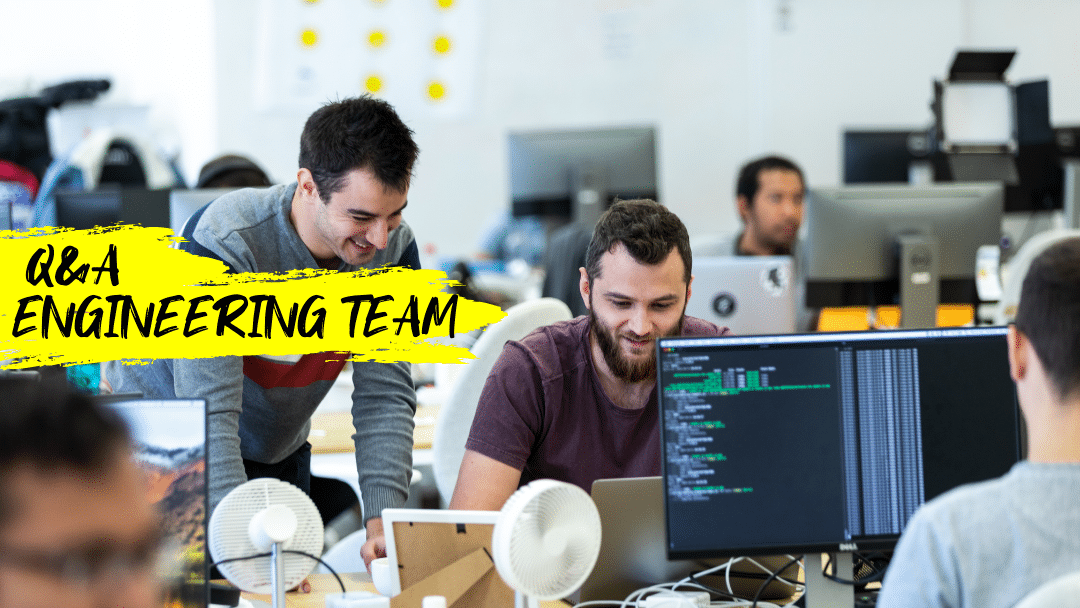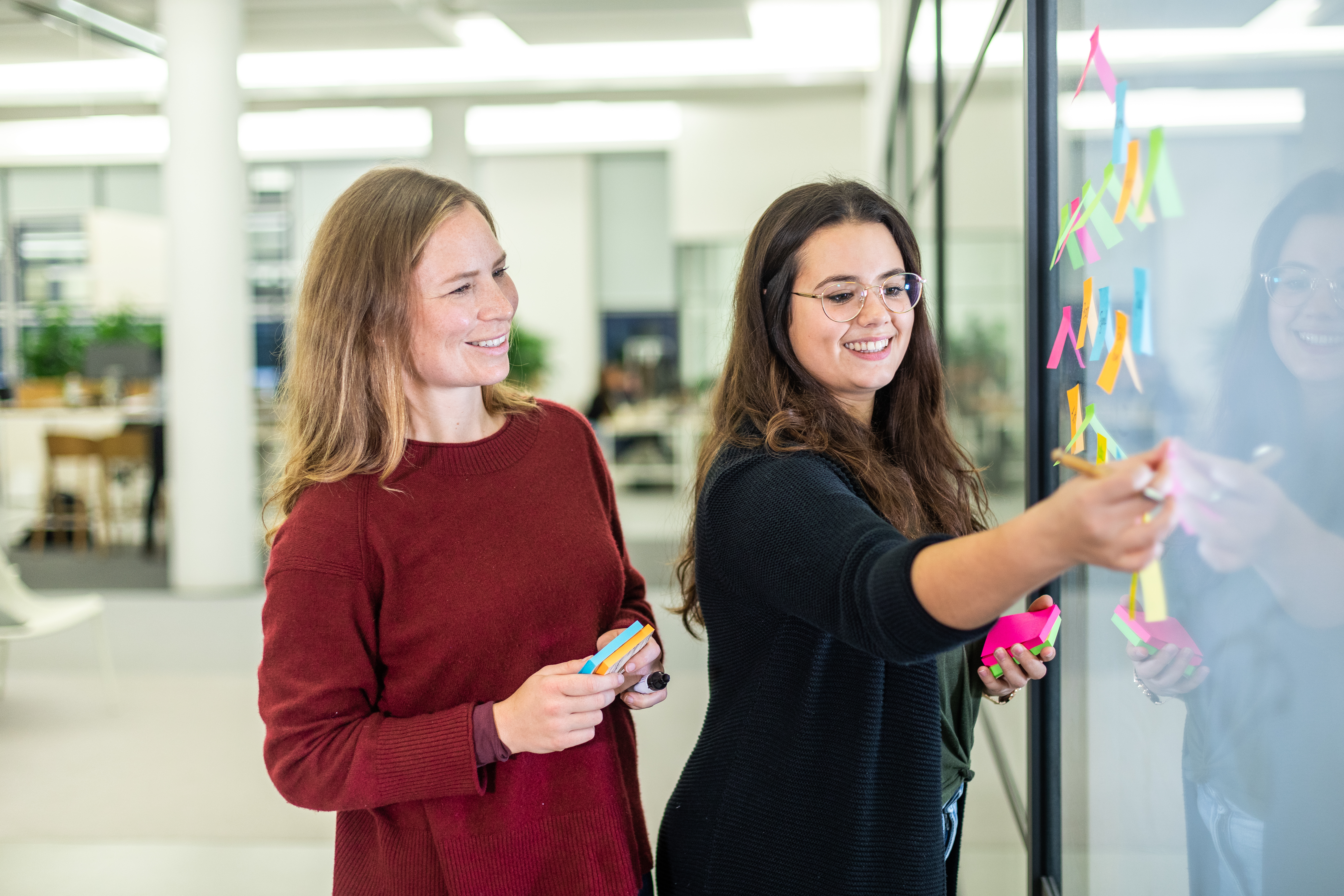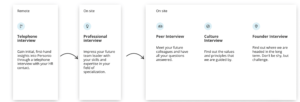
Join One of Europe’s Fastest-Growing Companies
We have over 1,000 employees in Munich, Dublin, Madrid, London, and Amsterdam.
Find Your Next Role18. December 2020
People @ Personio – Q&A Engineering Team

At Personio, we are continuing to grow seeking in pursuit of our core purpose: Enabling Better Organizations.
Contents
- 1How would you describe the Engineering Culture at Personio?
- 2How is the team set up?
- 3How synchronized is the work between members of the team?
- 4Does the team actually allow significant work that you can do in an asynchronous mode, or is it more continuous development within the team?
- 5Do you have plans for remote working?
- 6What are the challenges that come with that hypergrowth?
- 7How our recruitment process looks like after you have applied: how do I know if I am eligible for the Engineering recruitment process and how can I apply?
- 8Do you sponsor visas?
- 9Are you thinking of expanding to other countries outside Europe (America, Asia, etc.)?
Coming to the end of 2020, we can proudly say that we are already almost 600 Personios strong around the world. However, we still have a long way to go to reach our ambitious goal to become Europe's leading HR platform.
Continue reading to get the most commonly-asked questions and answers regarding our engineering department, the hiring process, visas, the teams, future plans, and more…
1. How would you describe the Engineering Culture at Personio?
Overall, our culture at Personio is based on our #PersonioCode. This is our system of values and operating principles that guide the way we work and also guides us in who we hire, reward, and ultimately, who sticks with us in the long-run.
Especially true in our Product & Engineering department, #CustomerEmpathy is one of our core values. That means we strive to understand our customers and to make them successful. They are the ultimate reason we exist.
We try to always keep in touch with our customers. This way, when they come and share their stories with us, it helps everybody understand the impact of our product. Therefore, all that we do keeps our customers, and their needs, in mind.
Another trait that defines our department is that our engineers are responsible for keeping the quality bar of our product. In this sense, they have to come prepared with a ‘Developer’s mindset’ to get the job done. Instead of a dedicated team of testers, every engineer is responsible for building and maintaining our tests, and we have a Site Reliability Engineering (SRE) team and a Quality Assurance Engineering in tech platform to support and enable the engineers to do so.
Therefore, the role of the Quality Engineering team is essential in order to build the automation infrastructure and the larger pieces, so every team can empower themselves in every tribe.
On the other hand, for SRE, the main goal is to keep the site up, provide best practices, and ensure that the proposed ways that should be built in this larger infrastructure are implemented.
The observability and some of these generic topics are also part of this team. But, in short, our developers, in general are owners of the modern methodology that stands by our core value #Ownership: "You build it, you run it." They are always making sure that everybody keeps quality top of mind.
2. How is the team set up?
Forget about top-down management structures filled with bureaucracy. Instead, we use tribes and guilds to keep everything running. We have teams organised by tribes and guilds, for every relevant topic, where we essentially put engineers together for Backend architecture, Frontend, and DevOps.

Our main goal is to have representation of every team with at least one engineer in each of the guilds, but that can lead to big groups of people and make the discussions difficult to manage. So, if we can’t have every team there, we make sure that there is at least one engineer for the tribe to avoid losing representation. To enable every engineer to contribute, we also periodically rotate the people in the guilds, so that every engineer can have a chance to participate.
3. How synchronized is the work between members of the team?
It depends. If you look at Tech Platform, the teams are typically closer together. That’s because bad decisions can be taken if you lack direct contact. At the same time, we are also experimenting with spreading teams where we find the talent and then building a working mode around it. Typically, though, because people are in one timezone, the work is rather synchronous. Normally we work in a collaborative way with regular co-working sessions including teammates from other offices, we also practice pair programming and we are in constant communication through our slack channels.
4. Does the team actually allow significant work that you can do in an asynchronous mode, or is it more continuous development within the team?
Keeping in mind that our business hours adhere to EU times, if real-time communication is not happening, it would hamper what you are doing.
Since we offer a broad spectrum, it really depends on where you are. For example, the worst team to be 10 hours away is probably SRE, because if you don’t get the chance to have the people on the phone or Slack when you need them to, then it can lead to wrong decisions.
5. Do you have plans for remote working?
We are starting to experiment with it due to the current situation regarding Covid-19. In the past, more generally, we had centralized teams in certain offices with an “office-first” approach, and people would work from home only a few times during the week. Now we are looking into “what does it mean for our culture to have teams work fully remote and then coming together regularly?”
We want to become more flexible, but we are still looking into it since we don’t want to rush it and implement it without studying all the implications and how they could impact our culture. At present, we can say 70% of the engineers are currently working remotely. However, we found out that it is way more effective when everybody is remote rather than a half-and-half approach.
Be Part of Something Bigger

Help shape the future of HR, the future of our company and the future of you. Join ambitious, forward-thinkers who want to have a real impact.
Learn more7. What are the challenges that come with that hypergrowth?
We are building and running projects as fast as we can. The real challenge for us right now is to say, “Hey, this is an area that we are not going into.” For example, we did some Mobile development earlier this year, and we have an app, but it is rather rudimentary: Our users are power users, they use two monitors and the mobile application for them is nice but not the core mode of interacting with our software. We are super enthusiastic about mobile, but focusing on it right now is not the plan.
8. How our recruitment process looks like after you have applied: how do I know if I am eligible for the Engineering recruitment process and how can I apply?

Please feel free to check out our career page and apply for any position that matches your skills. You can apply for as many positions as you want to, as long you consider they fit your skills and interests.
You will hear back from us within a short amount of time. Our recruiters will contact and invite you for the first round of interviews, where we go through your experience and we also share what is important for us in that specific role. This point is where “eligibility” is identified.
Before Covid-19, we would do as many interviews as possible on-site. However, due to the current situation this has changed, so we switched completely to remote-only interviews (in some cases with the option to come to the office for the final rounds). In the end, it all depends on the individual decision of candidates and whatever feels most comfortable for them.
9. Do you sponsor visas?
Yes, we sponsor visas. However, due to the current situation, it all depends on what is realistic in terms of bringing people in. We also have agencies that help out and support relocating new employees.
For some testimonies about the relocation experience and the Visa paperwork you can check out our latest relocation story here.
10. Are you thinking of expanding to other countries outside Europe (America, Asia, etc.)?
As our focus lies on European SMEs, we are working everyday within a 4-hour time zone difference at maximum. This helps us with legislation, with the legality of how we store the data, and with on-call as well. Currently we are not planning on expanding beyond Europe, although that might change in the future.
If you would like to be part of a team like this, go ahead and check out our open positions! We may be looking for somebody, just like you!
